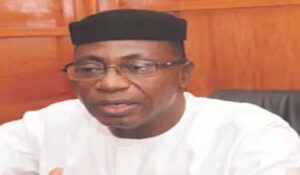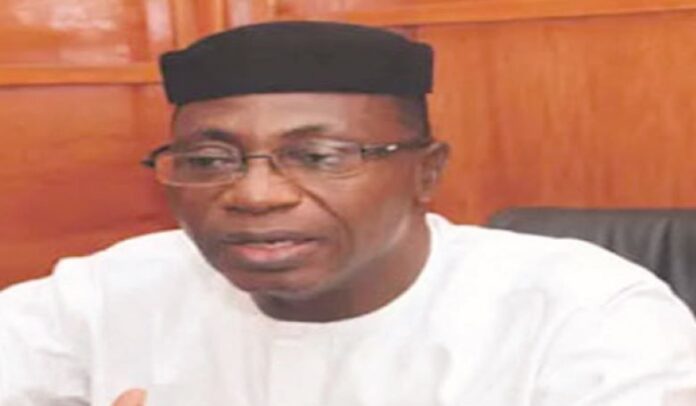By Dr Olusanya Awosan
The story of Nehemiah serves as a timeless example of empathetic and conscientious leadership. Despite his comfortable position in the Persian king’s palace, Nehemiah’s heart was with his people in Jerusalem. On learning about their suffering, he did not turn a blind eye. Instead, he was deeply moved and motivated to take action. This example is highly pertinent to the Nigerian political class, today; who, despite their relative affluence, must rise to address the dire conditions facing their fellow citizens. The seemingly reckless gallivanting of Nigerian politicians, across the board, despite the harrowing economic conditions of Nigerians, is, to say the least, very frightening.
Nigeria is facing severe economic challenges that have left many citizens in a state of hardship. Inflation has soared, leading to an unprecedented increase in the cost of goods and services. Basic necessities like food and shelter are increasingly out of reach for a significant portion of the population. Hunger and starvation are becoming alarmingly common. Thus painting a grim picture of the current living conditions in the country.
In all these, the carriage and mentality of Nigerian politicians are echoes of King Pharaoh, who knew not Joseph.
Nehemiah’s story provides several key lessons that Nigerian leaders need to quickly emulate.
Nehemiah’s first response to the news of Jerusalem’s plight was one of deep sorrow and empathy. He wept, fasted, and prayed for his people. This level of concern is crucial for any leader who seeks to make a meaningful impact. Nigerian leaders must genuinely care about the well-being of their citizens and be moved by their suffering.
Nehemiah did not stop feeling sorrowful; he took bold and sincere steps to address the issue. He sought permission from the king, secured resources, and personally oversaw the rebuilding of Jerusalem’s walls.

Like Nehemiah Nigerian leaders must be proactive. They must go beyond rhetoric and take tangible actions to address the country’s economic and social problems.
Nehemiah carefully planned the reconstruction project, assigning specific tasks to different groups and ensuring that everyone worked towards a common goal. Effective leadership requires strategic planning and efficient execution. Nigerian leaders need to develop and implement comprehensive plans to tackle inflation, improve food security, and provide essential services to the populace.
Nehemiah rallied the people together, fostering a sense of unity and shared purpose. He understood that rebuilding Jerusalem was not a task he could accomplish alone. Nigerian leaders must work to unite the country, bridging ethnic, religious, and political divides. A unified nation is better positioned to overcome challenges and achieve sustainable development
History is replete with examples of leaders who have risen to the occasion to lead their nations out of penury:
Franklin D. Roosevelt. During the Great Depression, Roosevelt implemented the New Deal, a series of programs and reforms aimed at economic recovery. His leadership helped the United States navigate one of its most challenging periods.
Lee Kuan Yew: As the first Prime Minister of Singapore, Lee Kuan Yew transformed the city-state from a poor, underdeveloped country into one of the world’s wealthiest and most developed nations. His pragmatic and visionary leadership was instrumental in this transformation.
Nelson Mandela: Mandela’s leadership in South Africa helped to dismantle apartheid and usher in an era of reconciliation and rebuilding. His commitment to justice and equality serves as an enduring inspiration for leaders worldwide.
The current state of Nigeria calls for leaders who embody the qualities of Nehemiah and other transformational leaders from history. Nigerian political leaders must: demonstrate a deep and genuine concern for the plight of the Nigerian people. Listen to their struggles and be moved to act.
They must take bold and decisive actions to address the economic and social issues facing the country. This includes implementing policies that will curb inflation, improve food security, and create jobs.
They must find a way to engender national unity by promoting inclusivity and addressing the needs of all ethnic and religious groups.
Nigerian leaders need to lead by example and exhibit integrity, transparency, and accountability in all dealings. Build trust with the populace by demonstrating a clear commitment to the welfare of citizens.
In conclusion, the story of Nehemiah is a powerful reminder of the impact that empathetic and proactive leadership can have on a nation. Nigerian leaders have the opportunity to rise to the challenge, just as Nehemiah did, and lead this country out of penury towards a brighter and more prosperous future.
Let’s share the grace in Fellowship.
Dr Olusanya Awosan, Public Relations Consultant and Publisher Nigerian Essence Magazine.

